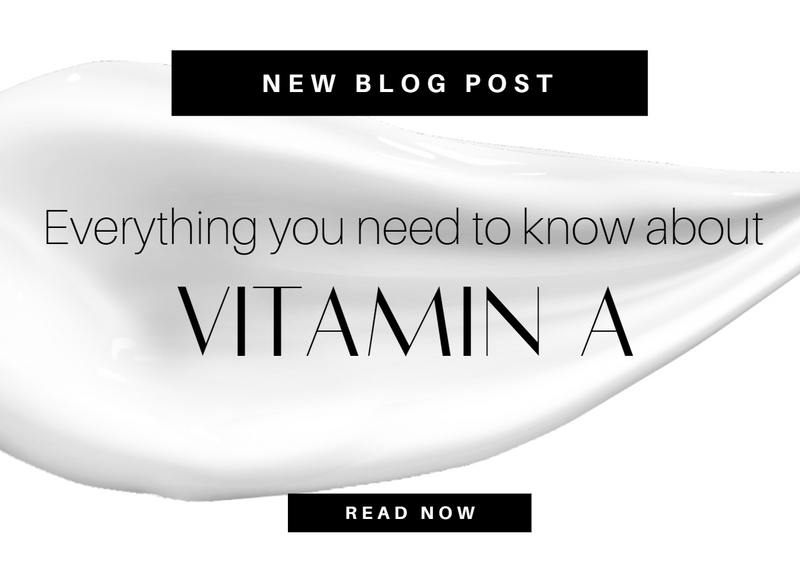The Power of Vitamin A for Your Skin: Benefits, Cautions, and How to Use It

When it comes to maintaining youthful, glowing skin, Vitamin A is a powerhouse ingredient that has earned its reputation in the world of skincare. Widely known for its ability to address various skin concerns, from fine lines to acne, Vitamin A—often found in forms like retinol or retinoids—works wonders on your complexion. But as with any potent active ingredient, there are key things to consider when incorporating it into your routine.
Here’s everything you need to know about how Vitamin A can transform your skin, along with some important usage tips and cautions.
What is Vitamin A and How Does It Benefit the Skin?
Vitamin A, commonly known in skincare as retinol or retinoids (in stronger prescription forms), is one of the most researched and effective ingredients for skin health. It works by increasing skin cell turnover, helping to shed dead skin cells and revealing fresh, healthy skin beneath. As a result, Vitamin A offers a host of skin benefits:
- Anti-Aging Properties: Retinol is famous for stimulating collagen production, which helps to reduce fine lines and wrinkles, giving the skin a smoother and firmer appearance over time.
- Improved Skin Texture: Regular use of Vitamin A can even out skin texture by promoting the shedding of dead cells, resulting in a brighter, more refined complexion.
- Acne Treatment: Vitamin A unclogs pores and reduces oil production, making it an effective treatment for acne and blemishes. It can also help reduce post-acne marks.
- Hyperpigmentation Reduction: It helps fade dark spots and even out skin tone, making it ideal for those dealing with sunspots or hyperpigmentation.
How to Use Vitamin A in Your Skincare Routine
Introducing Vitamin A into your routine should be done gradually, as it can cause irritation, especially for sensitive or first-time users. Here’s how to start:
-
Start Slowly: Use Vitamin A products just 2-3 times a week at first, allowing your skin to adjust to the active ingredient. As your skin builds tolerance, you can increase frequency to every other night or even nightly.
-
Apply at Night: Vitamin A breaks down under sunlight, making it most effective when used in your nighttime skincare routine. Always apply it after cleansing, followed by a moisturizer to help minimize dryness.
-
Use Sunscreen Daily: Vitamin A can make your skin more sensitive to UV rays, so it's crucial to wear sunscreen every day to avoid sun damage. Look for broad-spectrum SPF 30 or higher.
-
Layer with Care: Vitamin A can be potent, so be cautious when using it with other strong active ingredients like AHAs or BHAs (acids) and Vitamin C. It’s best to alternate nights or consult with a skincare professional on how to combine them safely.
Cautions and Contraindications
While Vitamin A is incredibly effective, there are a few things to keep in mind:
- Irritation: Some people may experience redness, peeling, or dryness when starting retinol. This is normal, but if it becomes too uncomfortable, reduce usage or switch to a gentler formulation.
- Sensitive Skin: Those with very sensitive skin should consider starting with lower-strength Vitamin A products (like retinaldehyde or encapsulated retinol) to minimize irritation.
- Pregnancy and Breastfeeding: High doses of Vitamin A can be harmful during pregnancy and breastfeeding. Always consult with a healthcare professional before using Vitamin A products during this time.
Choosing the Right Vitamin A Product for Your Skin
There are different forms of Vitamin A, and it’s important to choose one that suits your skin type and needs:
- Retinol: The most common over-the-counter form of Vitamin A, effective for anti-aging and acne, but typically gentler than prescription-strength retinoids.
- Retinaldehyde (retinal): A step up from retinol, it converts into retinoic acid in the skin and may deliver quicker results with less irritation.
- Prescription Retinoids (Tretinoin aka Retinoic Acid, Tazarotene ): For those with more severe skin concerns, prescription-strength retinoids provide faster, more noticeable results but can also cause more irritation and dryness.

Vitamin A is a must-have in any serious skincare routine due to its proven ability to address multiple concerns, from aging to acne. When used correctly, it can transform the skin, revealing a smoother, clearer, and more youthful complexion. However, starting slow, layering it properly, and using sunscreen are key to getting the most out of this powerful ingredient.